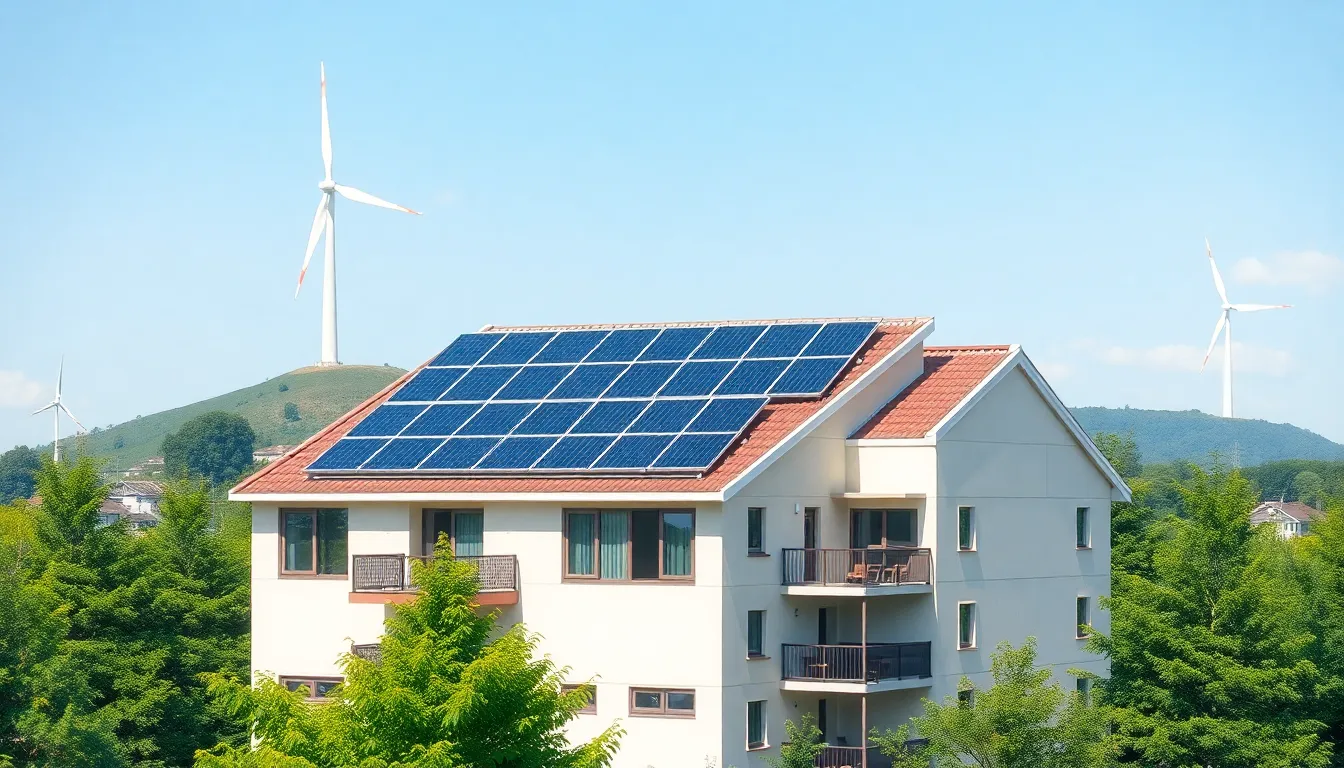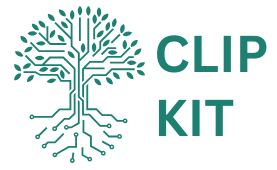Table of Contents
ToggleIn a world where fossil fuels are about as popular as a root canal, clean energy startups are stepping up to save the day—and the planet. These innovative companies are harnessing the power of the sun, wind, and even the occasional dance party to create sustainable solutions that make Mother Nature proud. Who knew saving the Earth could be this cool?
Overview of Clean Energy Startups
Clean energy startups play a critical role in the global shift toward sustainable energy sources. These companies focus on innovative technologies that harness renewable resources such as solar, wind, and hydroelectric power. Many startups create solutions that directly address climate change, providing alternatives to traditional fossil fuels.
Solar energy startups lead the way by developing advanced photovoltaic systems. They utilize cutting-edge materials and designs to increase efficiency and lower costs. Wind energy companies also contribute significantly. Innovative turbine designs and energy storage solutions enhance the reliability and integration of wind power into existing grids.
Hydrogen-powered startups emerge as a promising frontier. They seek to exploit hydrogen’s potential as a clean fuel source. These startups often work on methods to produce green hydrogen using renewable energy. By reducing reliance on carbon-intensive methods, they create a sustainable energy future.
Startup hubs sprout in various regions around the globe, promoting clean energy initiatives. Venture capital increasingly flows into these startups, indicating investor confidence. In 2022 alone, funding for clean energy startups reached $60 billion, showcasing substantial market interest.
Challenges remain in scaling these startups. Regulatory hurdles and competition from established energy companies often impede growth. Despite these obstacles, many startups exhibit resilience, creating robust business models that prioritize sustainability and innovation.
Government support adds momentum to the clean energy sector. Incentives and grants foster innovation, making it easier for startups to bring their ideas to market. As awareness of climate issues rises, clean energy startups continue to gain traction in an evolving energy landscape.
Types of Clean Energy Startups

Clean energy startups focus on various technologies essential for sustainable energy solutions. Key areas of innovation include solar and wind energy, as well as energy storage technologies.
Solar Energy Innovations
Solar energy startups lead the market with advancements in photovoltaic systems. These innovative solutions enhance efficiency, reducing costs and making solar installations more accessible. They explore technologies like bifacial solar panels that capture sunlight from both sides, increasing energy output. Furthermore, integrated solar solutions combine energy generation with home designs, maximizing space utilization. Significant investments are flowing into these companies, empowering them to accelerate research and development initiatives.
Wind Energy Solutions
Wind energy companies develop advanced turbine designs that improve power generation efficiency. By utilizing taller towers and larger rotor diameters, these startups capture more wind, bolstering energy output. Many are also focusing on offshore wind technologies, which harness stronger and more consistent winds at sea. Innovations in energy storage solutions complement wind technologies, ensuring a continuous power supply even when wind speeds fluctuate. As competition grows, startups are forming partnerships with larger corporations to enhance their market presence.
Energy Storage Technologies
Energy storage startups create solutions essential for maximizing renewable energy utilization. They specialize in battery technologies, such as lithium-ion and solid-state batteries, which enhance performance and longevity. By focusing on grid-scale storage systems, these innovators help mitigate the intermittency of solar and wind power. Some companies explore alternative methods, including pumped hydro storage and thermal storage, diversifying energy storage options. This focus on innovation supports the clean energy landscape, facilitating a smoother transition to a renewable energy future.
Challenges Faced by Clean Energy Startups
Clean energy startups encounter several challenges that impact their growth and sustainability. Navigating these obstacles is crucial for their success in transforming the energy landscape.
Funding and Investment Obstacles
Securing funding poses a significant hurdle. Investors often prioritize established players over newcomers, creating difficulties in attracting capital. Limited access to venture capital can stymie innovation. Additionally, fluctuating market conditions can affect investor confidence, leading to further financial uncertainties. Startups must craft compelling business models that emphasize sustainability and potential returns to gain financial backing. Many entrepreneurs relentlessly seek alternative funding sources, such as government grants or crowdfunding, to support their initiatives.
Regulatory Hurdles
Regulatory environments can be complex and vary significantly by region. Complying with local, state, and federal regulations consumes valuable resources that could otherwise contribute to innovation. Navigating these compliance requirements requires time and expertise, often delaying product development. Regulatory shifts can also introduce unexpected obstacles, complicating the market entry for new technologies. They must stay informed about changing legislation to ensure adherence while advocating for favorable policies that support clean energy initiatives.
Market Competition
Competition from established energy companies presents a formidable challenge. Incumbents with substantial resources can leverage economies of scale and market dominance, making it difficult for startups to gain traction. The influx of new entrants in the clean energy space intensifies this challenge, increasing competition for market share and visibility. Innovative solutions become essential for differentiating from competitors. Collaboration with other startups or organizations can create synergies and enhance competitiveness, allowing startups to carve out niches in the evolving energy landscape.
Success Stories in Clean Energy Startups
Clean energy startups demonstrate remarkable potential, influencing the transition to sustainable energy sources globally. Their innovative approaches and technologies contribute significantly to environmental preservation.
Notable Companies and Their Impact
Solar energy companies, like SunPower and First Solar, excel in developing high-efficiency photovoltaic systems. Wind startup Vestas focuses on advancing turbine technology, enhancing power output while reducing costs. Hydrogen-powered innovators such as Plug Power explore green hydrogen solutions, aiming to revolutionize fuel accessibility and recycling efforts. Each of these companies significantly reduces reliance on fossil fuels, driving industries forward toward renewable options.
Key Strategies for Growth
Startups prioritize securing diverse funding sources, often partnering with venture capital firms focused on sustainability. Many embrace cutting-edge research to develop unique technologies that set them apart in a competitive marketplace. Strategic collaborations with established energy firms streamline entry into the market, offering valuable insights and resources. Leveraging governmental incentives accelerates growth, empowering startups to innovate and expand their reach in the clean energy sector.
Future Trends in Clean Energy Startups
Emerging innovations define the future of clean energy startups. Solar technology is heading towards multifaceted applications, such as building-integrated photovoltaics, enhancing aesthetics while generating power. Wind energy advancements focus increasingly on larger, more efficient turbines, allowing for greater energy capture.
Energy storage solutions gain traction with developments in solid-state batteries and advanced thermal energy storage systems. These technologies promise to provide more reliable energy storage, addressing the intermittent supply from renewable sources. In 2023, companies in this sector attracted over $15 billion in investments, aiming to meet the growing demand for energy resilience.
Another trend is the demand for integrative platforms combining solar, wind, and energy storage. Startups are developing software solutions that optimize the management of energy consumption and storage. This integration enhances efficiency and creates synergies that benefit consumers and businesses alike.
In addition, green hydrogen initiatives are garnering significant attention. Startups explore methods to produce hydrogen with minimal environmental impact, attracting investment in pursuit of cleaner fuel alternatives. This push aligns with global decarbonization goals and energy transition efforts.
Regulatory frameworks are evolving, favoring clean energy innovation. Governments are introducing new policies that enable faster permitting processes and improved financial incentives. This supportive environment encourages startups to bring revolutionary solutions to market more smoothly.
As competition intensifies, collaboration among startups is becoming essential. Partnerships allow access to shared resources and networks that strengthen market positions. Moving forward, successful companies will combine innovative technologies with strategic partnerships to navigate challenges and expand their influence in the clean energy landscape.
Clean energy startups are at the forefront of a transformative shift in the energy landscape. Their innovative approaches and commitment to sustainability are not just reshaping how energy is produced but also how it’s consumed. As these startups continue to tackle challenges and leverage opportunities, they’ll play an essential role in driving the global transition to renewable energy sources. The future looks bright as they pave the way for a cleaner and more sustainable world, inspiring others to join the movement toward eco-friendly practices.




